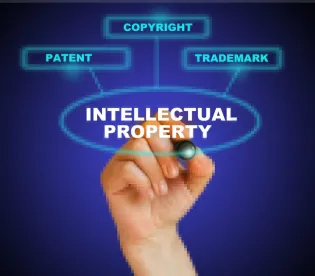Addressing a decision by the Patent Trial and Appeal Board (PTAB or Board) denying a motion to amend claims under inter partesreview (IPR), the US Court of Appeals for the Federal Circuit remanded the matter to the Board for failure in part to follow the Board’s own prior decisions. Nike, Inc. v. Adidas AG, Case No. 14-1719 (Fed. Cir., Feb. 11, 2016) (Chen, J).
After the Board’s institution of IPR proceedings, the patent owner, Nike, brought a motion to amend, which proposed canceling all 46 claims at issue and substituting new claims 47–50. In its final written decision, the Board granted the request to cancel claims 1–46 but denied entry of the substitute claims because the patent owner did not persuade the Board that the substitute claims were patentable over the prior art applied in the IPR “and over prior art not of record but known to the patent owner.” On appeal, the patent owner argued that the Board erroneously shifted the burden of proving patentability of the substitute claims, that the Board’s determination that the substitute claims were obvious was erroneous, and that it was improper for the Board to require the patent owner to establish patentability over art not of record but known to the patent owner.
With regard to the first issue (the patent owner’s burden), the Federal Circuit noted that while 35 USC § 316(e) places the burden of proving unpatentability on the petitioner as it relates to any patent claim included in the Board’s decision instituting IPR proceedings, § 316(a)(9) indicates that the patent owner has an affirmative duty to justify why newly drafted claims should be entered. The Court found that when the two statutes are read together, § 316(e) does not necessarily apply to claims that were not in existence at the time a petition was filed or when the IPR proceeding was instituted. Thus the Board did not err by placing the burden on the patent owner to establish patentability of the amended claims over the prior art.
The Court did, however, vacate the Board’s determination that the substitute claims would be rendered obvious based on procedural issues. The Court rendered this decision in part because the Board’s final written decision lacked discussion or any acknowledgement of secondary considerations, and also because the Board improperly grouped substitute claims 48 and 49 together in its determination of patentability with respect to those claims (thus contravening its own prior decision in Idle Free Sys., Inc. v. Bergstrom).
As for the issue of distinguishing over prior art known to the patent owner, the patent owner provided a simple statement in its motion that its proposed substitute claims were patentable over prior art known to the patent owner, but not part of the record in the proceedings. The Federal Circuit held that the patent owner’s failure to address any specific prior art not of record was not fatal. The Board’s own “Representative Decision” on Motions to Amend, MasterImage 3D, Inc. v. RealD Inc., found that prior art known to the patent owner “should be understood as no more than the material prior art that Patent Owner makes of record in the current proceeding pursuant to its duty of candor and good faith to the Office.” During oral argument, the US Patent and Trademark Office (PTO) acknowledged that the Board read its own decision “too aggressively,” and that the patent owner’s statement about the substitute claims’ patentability in its motion to amend would satisfy its obligation of candor to the PTO.
Thus, the Court found that, absent an allegation of conduct violating the duty of candor, the patent owner’s statement regarding the patentability of its substitute claims over other art known but not of record was adequate, and did not support a denial of the patent owner’s motion to amend.



 />i
/>i


